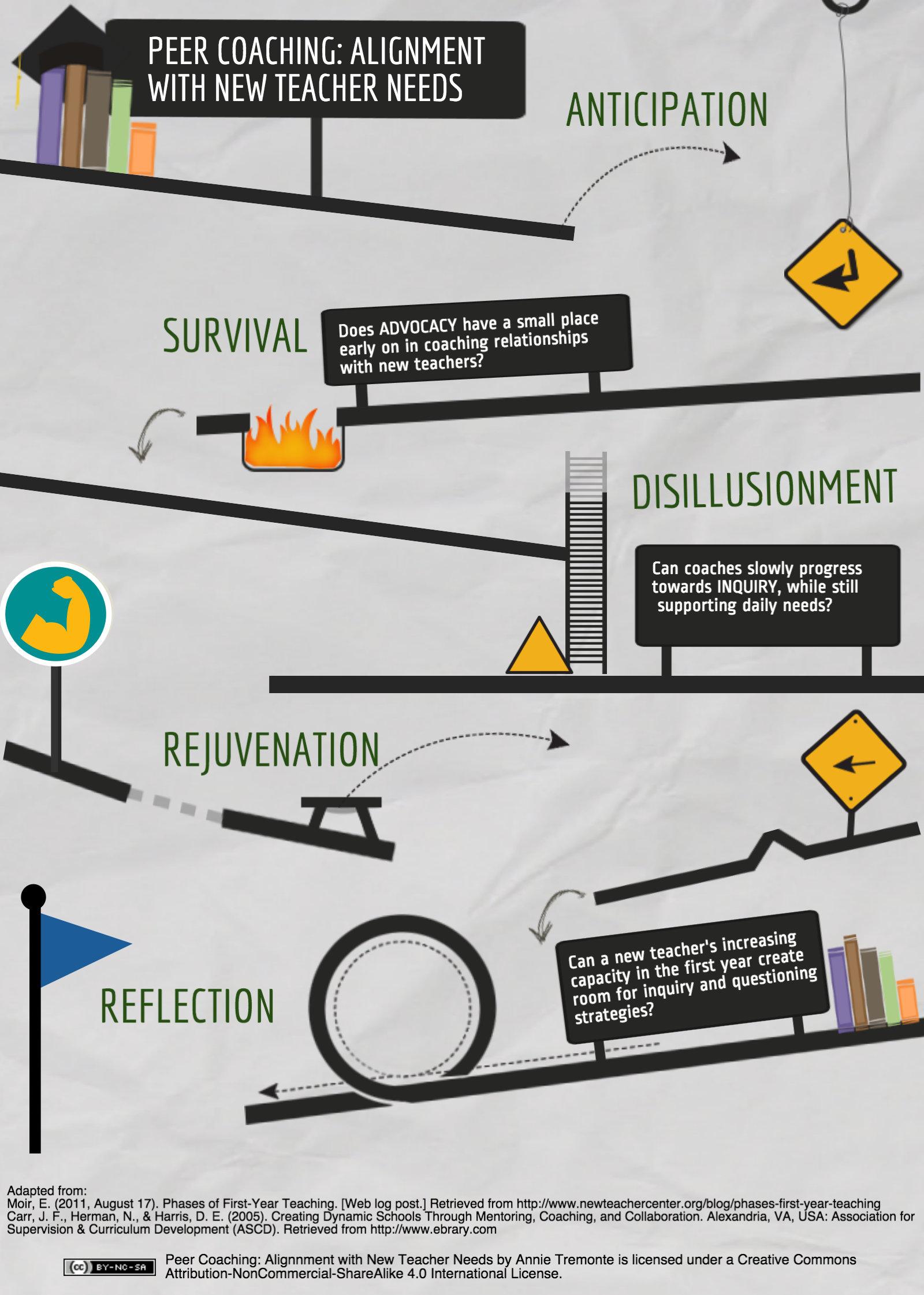This week in the Digital Educational Leadership program at Seattle Pacific University, I am exploring the roles of communication and collaboration in peer coaching as they align with ISTE Coaching Standards 1 & 2. Foltos (2013) asserted that effective communication and collaboration in a coaching relationship, “emphasize[s] inquiry over advocacy” (p. 87). He stated that reliance on advocacy can result in too much reliance on a coach’s expertise (Foltos, 2013). Instead, inquiry and feedback cycles between collaborating partners build capacity for autonomous problem solving, which serves to best meet student needs (Foltos, 2013).
For better or for worse, new teachers have the same amount of responsibilities that veteran teachers do. Additionally, they have to learn these responsibilities in real time. While coaches desire to build a new teacher’s capacity, it is still all too easy to advocate when daily problems need solutions. Unfortunately, reliance on advocacy puts the coach in the role of perpetual expert (Foltos, 2013). While I am not an expert in all realms, I do have an expertise that could be useful to a new teacher. On the other hand, I don’t want to influence a teacher too heavily from my one set of experiences and perspectives. Where is the balance between inquiry and advocacy in a coaching relationship with a new teacher?
